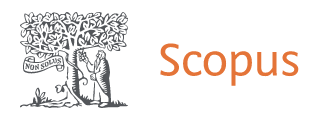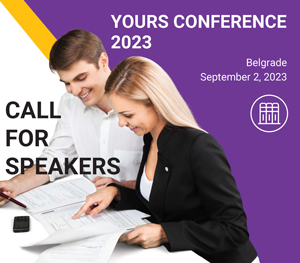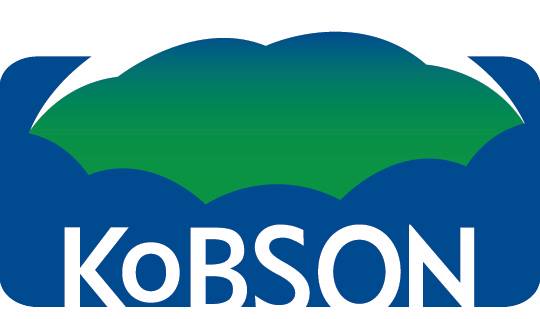DOI: 10.5937/jaes16-19490
This is an open access article distributed under the CC BY-NC-ND 4.0 terms and conditions.

Volume 16 article 562 pages: 538 - 552
One of the main problems of the modern higher education system in the Russian Federation (RF) is under representation of knowledge in the educational process as a factor that determines not only the content of thinking but also the personality content. Hence, it updates the issue of providing pedagogical conditions for the development of students’ ability to reflect, which causes quality changes in the self-awareness structure. Through expansion, its cognitive components ensure positive developments in self-formation of future specialists and their self-adjustment. Based on a literary review, the article analyzes and substantiates the reflection concept content. By means of interviewing, the level of the reflective competence in students in the process of solving problems was analyzed through the example of mechanic engineering students of Russian universities. Based on multidimensional factor analysis, structural (constructive and situational-destructive) factors of students’ reflection in the educational process were identified. Student clusters were formed and substantiated by the growth rates of reflective competence factors. The optimal development level of the situational-destructive factor in student reflection in the process of solving problems was determined. Education technologies for developing reflective competence in students were elaborated. Parameters of pedagogical reflection development in the educational process were substantiated. A pedagogical experiment was conducted to assess the effectiveness of the proposed pedagogical conditions for the formation and development of reflective competence in students in the Russian universities under study. The research of the problem of reflection development in students in the higher education system of the Russian Federation makes a certain contribution to pedagogical science and teaching practice and opens up new opportunities for the student educational process.
1. Kankovskaya, A.R. (2016). Higher Education for Sustainable Development: Challenges in Russia. Procedia CIRP, vol. 48, 449-453.
2. Van Beveren, L., Roets, G., Buysse, A., & Rutten, K. (2018). We all reflect, but why? A systematic review of the purposes of reflection in higher education in social and behavioural sciences. Educational Research Review, vol. 24, 1-9.
3. Tremblay, M.-C., & Parent, A.-A. (2014). Reflexivity in PHIR: Let’s have a reflexive talk! Canadian Journal of Public Health, vol. 105, no. 3, 221-223.
4. Federal state educational standards of higher education. (2018). Portal of Federal State Educational Standards of Higher Education.
5. On the Federal Targeted Program for the Development of Education for 2016-2020. (2015). The Decree of the Government of the Russian Federation as of May 23, 2015. N 497.
6. Pinchuk, A. N. (2017). Educational practices of modern students of the socio-humanitarian profile of education. PhD Thesis. Maikop: Trubilin Kuban State Agrarian University.
7. Sidorenko, T., & Gorbatova, T. (2015). Effi ciency of Russian Education Through the Scale of World University Rankings. Procedia - Social and Behavioural Sciences, vol. 166, 464-467.
8. Ponto, J. (2015). Understanding and Evaluating Survey Research. J Adv Pract Oncol., vol. 6, no. 2, 168-171. 9. Rousseau, R., Egghe, L., & Guns, R. (2018). Statistics. Becoming Metric-Wise, 67-97.
10. Ruiz, C.A.G., & Luca, F. (2017). Fibonacci factoriangular numbers. Indagationes Mathematicae, vol. 28, no. 4, 796-804.
11. Menke, W. (2018). Factor Analysis. Geophysical Data Analysis (Fourth Edition), 207–222. 12. Suryani, D., Irwansyah, E., & Chindra, R. (2017). Offline Signature Recognition and Verification System using Efficient Fuzzy Kohonen Clustering Network (EFKCN) Algorithm. Procedia Computer Science, vol. 116, 621-628.
13. Potekhina, N., Shulinina, Yu, Kuzmina, N., Potalisina, L., & Sannikova, I. (2016). Correlational-regression Analysis Application for the Forecast of the Specialists with Higher Education Requirement in Russian Economy. International Journal of Economics and Financial Issues, vol. 6, no. 2, 617-620.
14. Mishra, S., & Datta-Gupta, A. (2018). Regression Modeling and Analysis. Applied Statistical Modeling and Data Analytics. A Practical Guide for the Petroleum Geosciences, 69-96.
15. Alós-Ferrer, C., & Hügelschäfer, S. (2016). Faith in intuition and cognitive reflection. Journal of Behavioural and Experimental Economics, vol. 64, 61-70.
16. Brown, B., Holt-Macey, S., Martin, B., Skau, K., & Vogt, E.M. (2015). Developing the reflective practitioner: what, so what, now what. Currents in Pharmacy Teaching and Learning, vol. 7, no. 5, 705-715. 17. Côté, J.-F. (2015). George Herbert Mead’s concept of society: A critical reconstruction. Paradigm publishers, New York.
18. Clatterbuck, H. (2016).Darwin, Hume, Morgan, and the veraecausae of psychology. Studies in History and Philosophy of Science Part C: Studies in History and Philosophy of Biological and Biomedical Sciences, vol. 60, 1-14.
19. Shchedrovitskiy, G. P. (2015). Organizational and managerial thinking. Ideology, methodology, technology. Artemiy Lebedev Studio, Moscow.
20. Ahmed, M.H. (2018). Refl ection for medical undergraduate: learning to take the initiative to look back to go forward. Journal of Hospital Management and Health Policy, vol. 2, no. 31, DOI: http://dx.doi.org/10.21037/jhmhp.2018.05.07
21. Smith, R.A., Andrews, S., Oliver, C., & Chambers-Evans, J. (2018). Putting reflective practice into action: A case study. Journal of Nursing Education and Practice, vol. 8, no. 10, 36-47.
22. Stingu, M., Ulrich, C., & Vrăsmaş, E. (2015). Using Refl ective Practice to Enhance Professional Development Through Written, Spoken and Visual Materials. Procedia - Social and Behavioural Sciences, vol.180, 1207-1214.
23. Karpa, J.V., & Chernomas, W.M. (2013). Nurse Educators’ Perspectives on Student Development of Reflection for Psychiatric Mental Health Nursing Practice. International Journal of Nursing Education Scholarship.
24. Zelazo, P.D. (2015). Executive function: Reflection, iterative reprocessing, complexity, and the developing brain. Developmental Review, vol. 38, 55-68.
25. Karpov, A.V. (2018). System and genetic regularities in the development of metacognitive entities.
26. Karpov, A.V., Bashaeva, T.V., Koneva, E.V., Markova, E.V., Myshkin, I.Yu., Orel, V.E., Razumovskaya, O.L., Skityaeva, I.M., Subbotin, L.Yu., Cheremoshkin, L.V. (2018). Psychology of labour. U-write, Moscow.
27. Manakhov, S. V. (2013). Refl exion as a leading component of psycho-prophylaxis of deviant behaviour of adolescents. Bulletin of Moscow State Open University. Series: Psychological Sciences, vol. 1, 75-80.
28. Rapatskiy, B. I. (2014). Refl ection as one of the mechanisms for the development of the personality Ludmila Panova, et al. - Development of refl ective competence in students in technical Universities of Russia of adolescents. The Humanitarian Vector, vol. 1, no.37, 149-153.
29. Martynova, A. V. (2015). The development of the need for reflection as a condition for the formation of professional self-awareness of the future teacher of an elementary school. Modern problems of the science and education, vol. 1, no. 1.
30. Anisimov, O.S. (2016). Methodological problems of the consolidation dynamics of the Russian society: a civilized approach. Kogito-Tsentr, Moscow.
31. Semenov, I.N. (2015). Self-observation reflexivity and introspection personology: to ontology and methodology of the reflexive psychology of individuality. Bulletin of Moscow University, vol. 4, 98-113.
32. Regulation on the rating system of knowledge assessments. (2018). Gubkin Russian State University of Oil and Gas.







